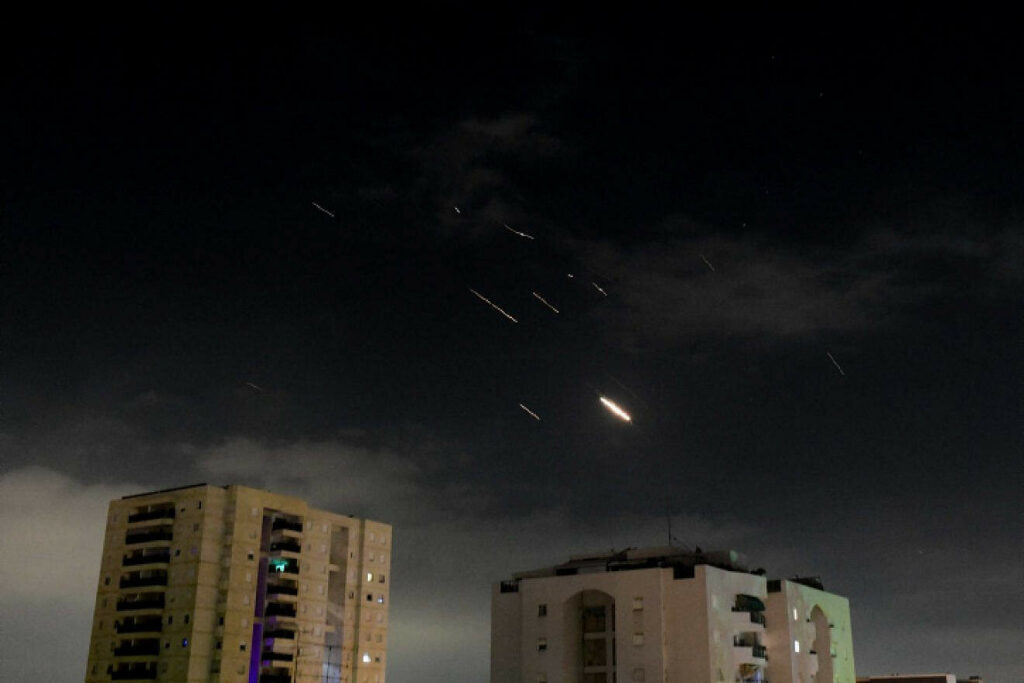Morocco’s purchase of Israeli spy satellite bolsters anti-Iran bloc

On July 10, 2023, Morocco media reported plans by the North African country to acquire a spy satellite from state-owned Israel Aerospace Industries in a $1 billion deal, signaling a hugely significant transfer of Israeli capabilities to a moderate Arab ally threatened by Iran.
The deal, reportedly to be implemented over five years, involves supplying Morocco with sophisticated satellite technology, enhancing Rabat’s surveillance and intelligence capabilities. This move represents a major leap in Morocco’s military and intelligence operations, but no less important, reflects its growing strategic partnership with Israel.
By coincidence or not, the announcement comes amid escalating concerns over Iranian support for the Polisario Front, a separatist group seeking independence from Morocco for Western Sahara.
Recent reports by La Revue Afrique have detailed Iran’s provision of advanced weaponry, including mortar shells and surface-to-air missiles, to the Polisario Front. These reports also highlight Hezbollah’s role in training Polisario fighters in Algeria.
Morocco has long accused Iran of destabilizing the region by arming the Polisario, prompting Rabat to sever diplomatic ties with Tehran in May 2018. Moroccan Foreign Minister Nasser Bourita cited Hezbollah’s military ties with the Polisario, facilitated through the Iranian embassy in Algeria, as a direct threat to Morocco’s security.
The purchase occurs among reports of escalating military tensions between Morocco and Algeria, and the persistent threat posed by the Polisario and its Iranian backers. The satellite will provide Morocco with enhanced surveillance capabilities, allowing it to monitor threatening activities and movements more effectively, as well as the Iranian efforts to move arms in the area.
Morocco’s acquisition saw Israel Aerospace Industries beat European competing bids from the European Airbus and French Thales companies.
Ofek 13
The Stockholm International Peace Research Institute (SIPRI) reported earlier this year that Morocco is interested in purchasing two IAI-made Ofek 13 spy satellites. “These observation satellites are considered one of the world’s best and are used by the IDF 9900 intelligence unit, which is responsible for gathering and extracting visual-geographical intelligence,” noted Globes.
Israel’s Ofek series of spy satellites, particularly the recently launched Ofek 13, which entered orbit in April 2023, pack a punch of advanced capabilities that Morocco could soon be enjoying. The Ofek 13 features a synthetic-aperture radar (SAR) sensor, which enables it to capture high-resolution images under a range of conditions, including at night and through cloud cover. This capability drastically improves Morocco’s ability to gather intelligence.
In December 2020, Morocco and Israel signed a normalization agreement as part of the Abraham Accords framework.
The strategic partnership is fueled by the need to counter common threats, particularly from Iran and its proxies. The United Arab Emirates and Bahrain signed the Accords with Israel in September 2020.
The Iranian support for the Polisario is part of Tehran’s broader strategy to extend its influence in the Arab world and North Africa, a strategy that is highly familiar to observers of the Iran-backed Hezbollah in Lebanon and the Houthis in Yemen.
The reported satellite sale is therefore a powerful reminder that Israeli partnerships with moderate Arab states can take on the form of the transfer of military capabilities, and that Arab states could in turn share intelligence and provide additional assistance to Israel.
Gulf Arab states reportedly took part in air defense interception efforts against the Iranian aerial assault on Israel in April.
In September 2022, reports surfaced indicating that the UAE had purchased an Israeli air defense system—Rafael Advanced Defense Systems’ Spyder system—to counter missile and drone threats from the Houthis.
Other examples, according to media reports, include sharing data from various defense sensors across multiple countries in the Middle East to provide early warning of airborne Iranian threats. This would enable earlier interceptions.
If Israel sells radars, surface-to-air missile interceptors and modern laser systems to Arab states, they could reciprocate by sharing data and intelligence on threatening Iranian aerial and sea activities.
Israel’s inclusion in the United States military’s CENTCOM framework in September 2021, which covers the Middle East, offers a valuable platform for American-orchestrated Israeli-Gulf defense cooperation.
If Israel can formalize relations with Saudi Arabia, this would form a major advantage in the evolving Israeli moderate Arab-bloc, all of which faces the severe threats from Iran and its regional axis.





